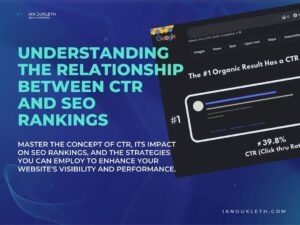The Importance of Blogging for Websites
Blogging, undeniably, has grown from a mere digital diary to a potent online tool. It offers countless benefits, not just for established websites but also for new ones.
From boosting Search Engine Optimization (SEO) to establishing authority and fostering community, blogging can play an integral part in your website’s success. One popular format you will often see is the ‘listicle,’ where information is presented in a list form, making it easy to digest and engaging for readers.

Why Should New Websites Consider Blogging?
There is no one-size-fits-all answer, as every website’s objectives are unique. However, some common benefits make blogging a consideration worth contemplating for new websites:
1. Boosts SEO:
Blogging helps improve your site’s visibility on search engines.
2. Establishes Authority:
High-quality, valuable content sets you apart as an industry expert.
3. Engages and Retains Visitors:
Blogs encourage visitors to spend more time on your site, increasing the chances of conversion.
4. Facilitates Content Marketing:
Blogs can be shared across social media platforms, drawing more traffic to your site.
5. Provides Value:
Offering answers to user queries or solutions to their problems builds trust and credibility.
Pros of Blogging for New Websites

Let’s delve deeper into these advantages:
Pro 1: Boosting SEO
Search engines favor fresh, relevant content. Each blog post you create is a new page for search engines to index, boosting your site’s visibility and rankings.
Pro 2: Establishing Authority
A blog can position your new website as a reliable source of information. This not only builds trust but also sets you apart from the competition.
Pro 3: Engaging and Retaining Visitors
Interesting and valuable blog content can keep visitors on your site longer, improving your bounce rate, and increasing chances for conversions.
Pro 4: Increasing Conversion Rates
A well-written blog can subtly guide your visitors towards making a purchase or signing up for a newsletter, effectively turning readers into qualified leads.
Pro 5: Facilitating Content Marketing and Social Media Sharing
Blogs create shareable content that can be circulated across various social media platforms. This can significantly increase your website’s visibility and attract more visitors.
Pro 6: Providing Value to Your Audience
By answering common questions or providing solutions, you can provide real value to your audience, enhancing their trust and loyalty to your brand.
Cons of Blogging for New Websites
Despite these compelling advantages, it’s only fair to acknowledge the potential drawbacks:
Con 1: Requires Time and Resources
Blogging can be a significant time investment. It requires a commitment to consistently produce high-quality content.
Con 2: Overwhelming for Small Teams
If you are a solo entrepreneur or have a small team, managing a blog on top of other responsibilities can feel overwhelming.
Con 3: Potential for Negative Feedback
Blogging opens a dialogue with your readers, which can sometimes invite negative feedback or criticism. However, this also provides an opportunity for you to address concerns and improve.

Making the Decision: Embracing the Power of Blogging
Weighing these pros and cons, the benefits of blogging for new websites are impressive. It’s true that it demands time, resources, and resilience, but with strategic planning, these challenges can be managed, and the rewards can be significant.
Blogging has the potential to transform your website, expanding its reach, increasing its authority, and fostering a community around your brand. It’s a potent tool for driving engagement, boosting SEO, and, ultimately, growing your online presence.
In the digital age, where content is king, blogging is your scepter, granting you power over your website’s success. So, as you map out your online journey, consider setting sail with blogging as your trusted compass. It might just be the best decision you make for your new website.



